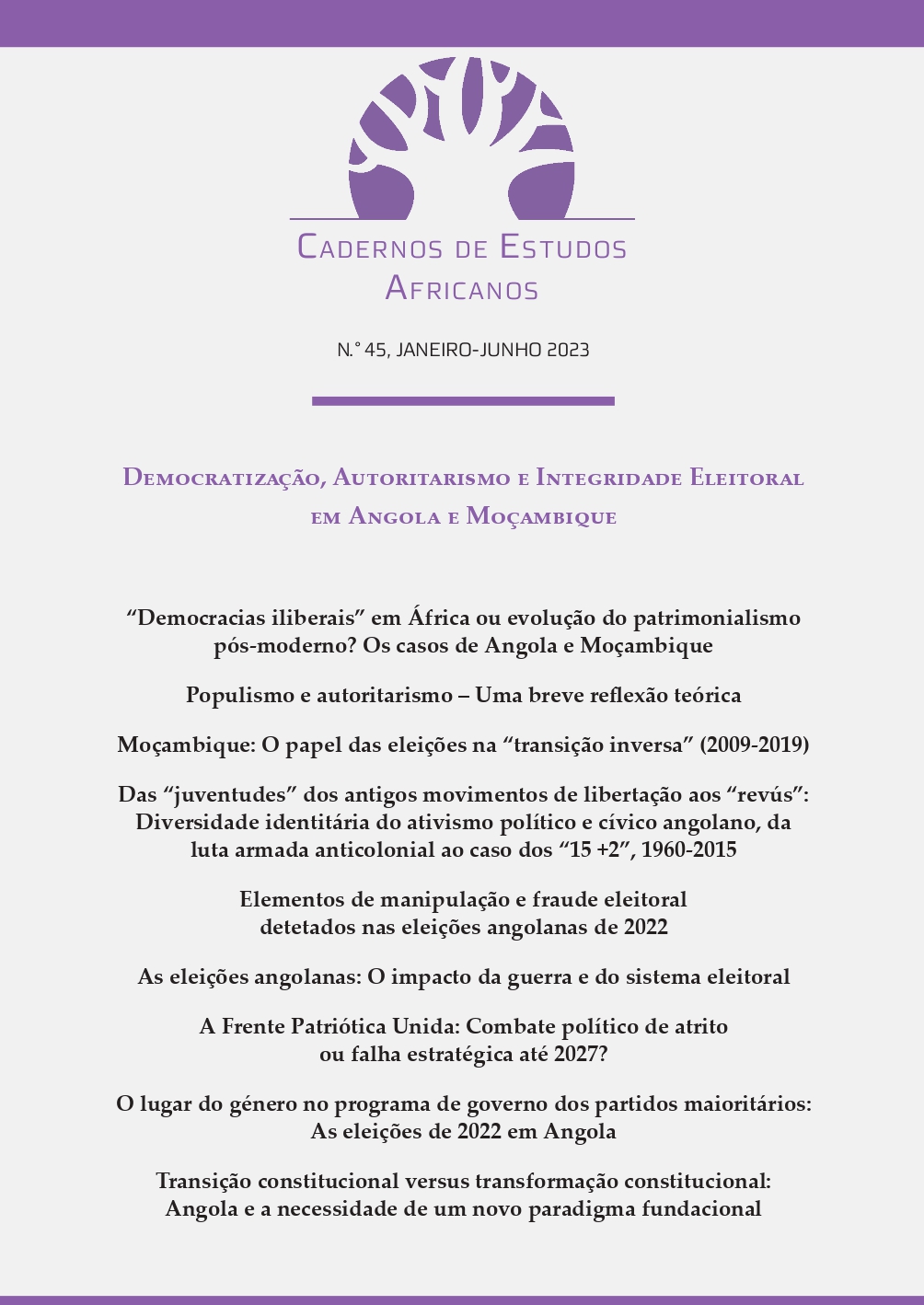Constitutional transition versus constitutional transformation: Angola and the need for a new founding paradigm
DOI:
https://doi.org/10.4000/cea.8099Abstract
This text argues that the constitutional transition envisaged for Angola from the First to the Second Republic (1991/92) and for the Third Republic, did not produce the rupture underlying this institute. The essential assumption of the constitutional transition, in the sense of causing a total rupture with the existing regime and installing other factors of power and a different regime, did not occur. Furthermore, there was a process of “constitutional transformation”, which maintained several fundamental features of the previous regime. Face with this reality, there is an urgent need for structural State reforms in line with the needs for current Angolan social and political affairs, which are outlined herein, focused essentially on the importance of an eventual bicameral Parliament and the departisanship of the State through the reform of the Law and Justice.
Downloads
Published
Issue
Section
License
Copyright (c) 2024 Cadernos de Estudos Africanos

This work is licensed under a Creative Commons Attribution-NonCommercial-ShareAlike 4.0 International License.
I authorize the publication of the submitted article/review of which I am the author.
I also declare that this article is original, that it has not been published in any other way, and that I exclusively assign the publication rights to the journal Cadernos de Estudos Africanos. Reproduction of the article, in whole or in part, in other publications or on other media is subject to the prior authorization of the publisher Centro de Estudos Internacionais do Iscte - Instituto Universitário de Lisboa.

